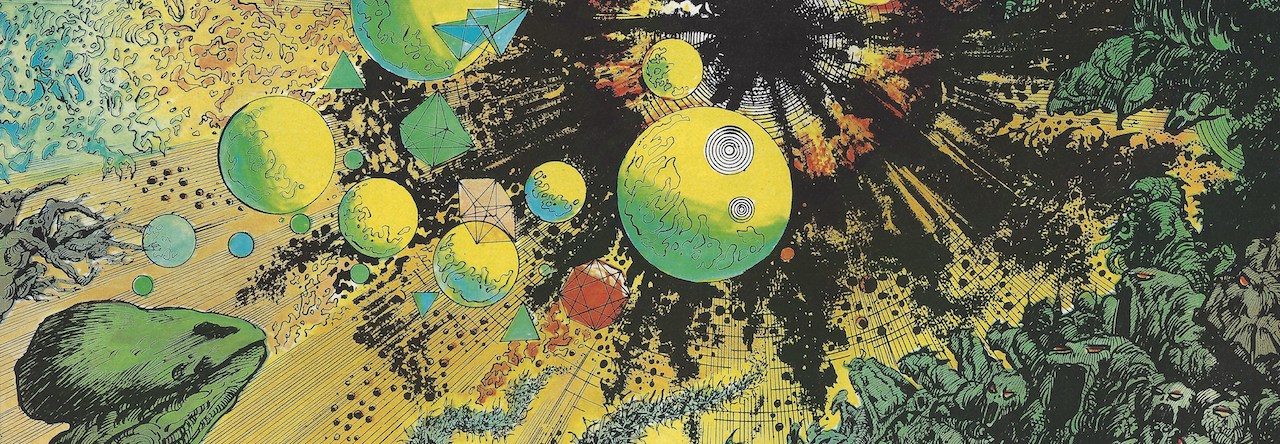It was more than two years ago that I read the first volume in this new hardcover series collecting the influential mid-1980s series by Alan Moore et al. and wrote about it here. I finally bought the second volume a few months back while visiting Santa Barbara and just got around to reading it now.
Pretty much everything I said about the first volume stands for the second. This collection deals largely with the relationship between Swamp Thing, his former life as Alec Holland and with Abby. It is Abby at the heart of these stories, as the meat of this book is the confrontation between Swamp Thing and Abby’s husband Matt Cable.
Moore’s handle on the craft is still improving here, leaping by bounds per issue, and he avoids the kind of obvious superhero confrontation that would have been very easy and pleasing for fans in favor of a story and a resolution that is much more thoughtful, mature and will resonate for years to come still.
There’s also some fun in here — with “Pog,” an issue in which Swamp Thing meets some aliens that are surrogates for the cast of Walt Kelly’s Pogo. This sounds like a disaster, but Moore manages to pull this off and make it work within the series and without being so incongruous, goofy or in love with itself that it breaks the spell.
The series concludes with a stunning issue in which Swamp Thing and Abby admit their love for each other and he allows her to see the world as he does. The techniques used here foreshadow the bulk of what Moore did with Promethea, and works completely and beautifully. The excellent art by Stephen Bissette and John Totleben make it completely natural to slowly turn the book in your hands until it’s sideways and then back again.
It’s amazing to look at these stories and realize how much DC and Vertigo built on the ideas and techniques Moore pioneered even in the first year and a half of his work on Saga of the Swamp Thing. It also is hard, if not impossible, to imagine that any comic produced in 2011 could have even half the impact that this series had in 1984 and 1985.
I hope I get around to reading Vol. 3 sometime before 2013.


